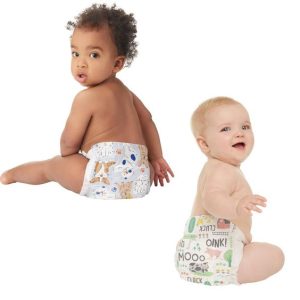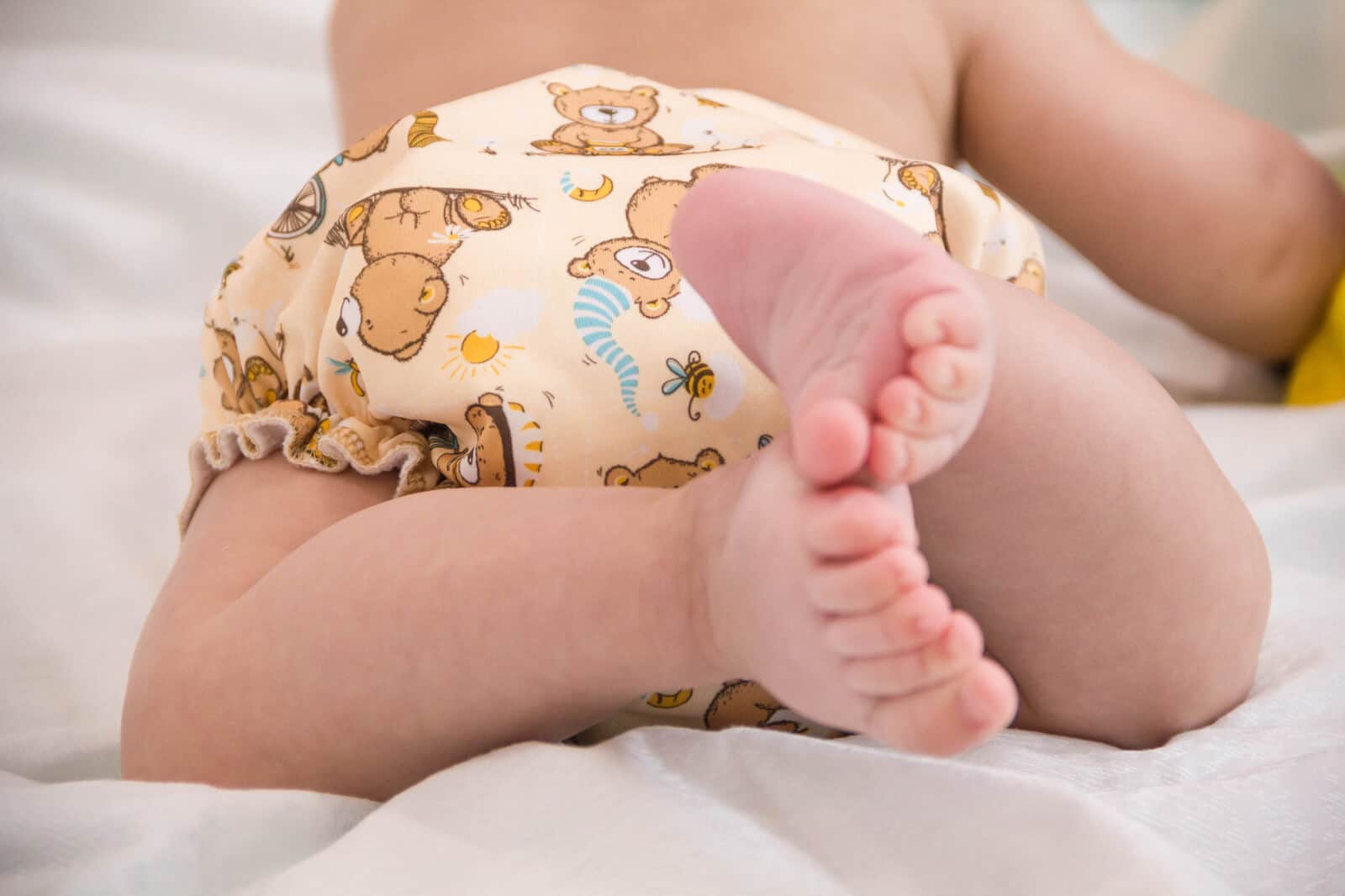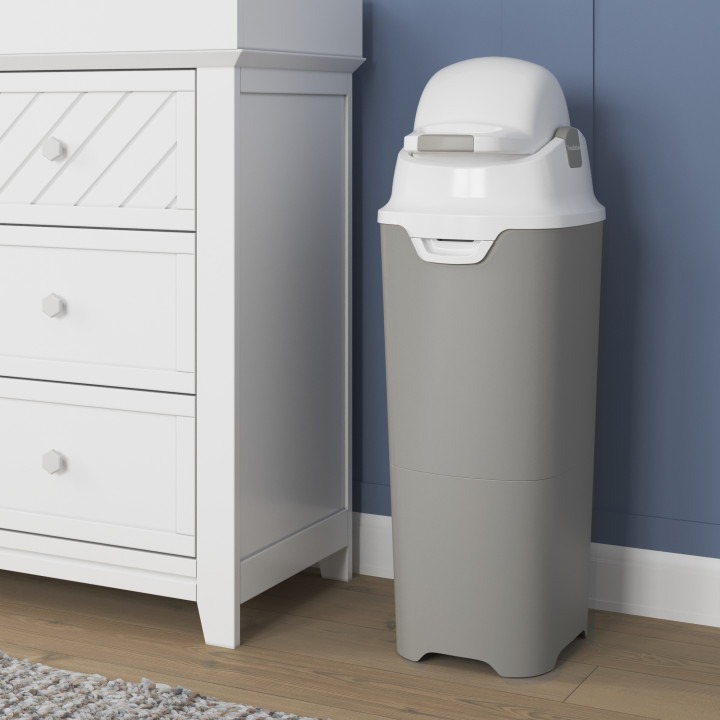Diapers are a necessary part of life for many parents and caregivers. But with the large volume of waste they create, many wonder: are diapers recyclable? The answer, unfortunately, is complex. Let’s explore the current state of diaper recycling and eco-friendly alternatives.
The Challenges of Diaper Recycling
Diapers are made of several materials, including absorbent materials, plastics, and fasteners. These materials pose challenges in the recycling process:
Contamination:
Diapers are soiled waste, making them difficult to decontaminate for recycling.
Sorting Complexity:
Sorting mixed materials in diapers is complex and expensive for recycling facilities.
Limited Recycling Facilities:
Currently, there are very few facilities that have the technology to recycle diapers.
Because of these challenges, disposable diapers typically belong in the trash. However, there are ongoing efforts to develop new technologies and composting programs that may change this in the future.
Eco-Friendly Diaper Options
While traditional disposable diapers aren’t recyclable, there are more eco-friendly diapering options to consider:
Cloth Diapers: Cloth diapers are reusable and can be washed and reused multiple times. They are a more sustainable option in the long run, but require more laundry and upfront costs.
Biodegradable Diapers: Biodegradable diapers are made from plant-based materials that break down faster than traditional diapers. However, their biodegradability may depend on specific disposal conditions, and they might not be suitable for composting at home.
Diaper Services: Diaper services provide clean, reusable diapers and pick up soiled ones for laundering. This can be a convenient option, but it may not be available in all areas.
Choosing the right option depends on your priorities and lifestyle. Consider factors like cost, convenience, and environmental impact when making your decision.
Reducing Diaper Waste
Cloth Diapers: Cloth diapers are reusable and can be washed and reused multiple times. They are a more sustainable option in the long run, but require more laundry and upfront costs.
Biodegradable Diapers: Biodegradable diapers are made from plant-based materials that break down faster than traditional diapers. However, their biodegradability may depend on specific disposal conditions, and they might not be suitable for composting at home.
Diaper Services: Diaper services provide clean, reusable diapers and pick up soiled ones for laundering. This can be a convenient option, but it may not be available in all areas.
Choosing the right option depends on your priorities and lifestyle. Consider factors like cost, convenience, and environmental impact when making your decision.
The Future of Diaper Recycling
Research into diaper recycling technologies is ongoing. Here are some promising areas of development:
- Composting Programs: Special composting programs are being piloted that can handle diapers and other organic waste.
- New Diaper Materials: Development of diapers made with materials that are easier to separate and recycle in the future.
While widespread diaper recycling isn’t available yet, these advancements offer hope for a more sustainable future.

Diapers are not typically recyclable with current technology. However, there are eco-friendly diapering options and ways to reduce diaper waste. New technologies and composting programs offer promise for the future of diaper recycling. By making informed choices, you can minimize your environmental impact while diapering your baby. While widespread diaper recycling isn’t available yet, these advancements offer hope for a more sustainable future.
Alternatives and Considerations for Diaper Disposal
Disposable diapers aren’t typically recyclable with current technology. However, there are alternative disposal methods and eco-friendly options to consider:
Following Local Guidelines: The best way to dispose of diapers depends on your local regulations and waste management practices. Check with your local sanitation department for specific guidelines in your area.
Biodegradable Diapers: Explore biodegradable diapers made from plant-based materials that break down faster than traditional diapers. Keep in mind that biodegradability depends on specific conditions, and these diapers might not be suitable for composting at home. Always follow the disposal instructions on the packaging.
Reducing Diaper Waste: There are ways to reduce the number of diapers you use, such as using cloth diapers part-time or choosing the right size diaper to prevent leaks.
By following these tips and staying informed about developments in diaper disposal, you can make responsible choices for your baby’s care.
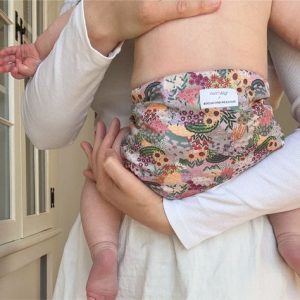
Finding the Right Diaper Solution for You
Disposable diapers are not typically recyclable with current technology. However, there are several factors to consider when choosing diapers that can minimize environmental impact:
Local Disposal Options: The best way to dispose of diapers depends on your local regulations and waste management practices. Check with your local sanitation department for specific guidelines in your area.
Biodegradable Diapers: Biodegradable diapers may be an option in some areas. These diapers are made from plant-based materials that break down faster than traditional diapers. However, biodegradability can depend on specific disposal conditions, so always follow the instructions on the packaging.
Cloth Diapers: Cloth diapers are a reusable option that can significantly reduce waste. However, they require more laundry and upfront costs.
Diaper Services: Diaper services may be available in some areas. These services provide clean, reusable diapers and pick up soiled ones for laundering, offering a convenient and potentially eco-friendly option.
By considering these factors and staying informed about developments in diaper disposal, you can make responsible choices for your baby’s care.
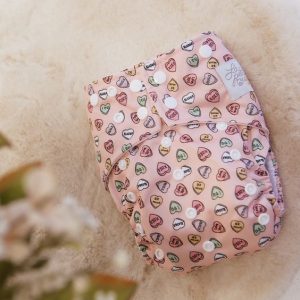
Considering Eco-Friendly Options for Diaper Disposal
Disposable diapers are not typically recyclable with current technology. However, there are ways to be environmentally conscious when it comes to diapering your baby:
Exploring Alternatives: Look into alternatives like cloth diapers or diaper services. Cloth diapers require more laundry but can significantly reduce waste in the long run. Diaper services offer convenient reusable diapers with pickup and laundering.
Local Disposal Options: The best way to dispose of diapers depends on your local regulations and waste management practices. Check with your local sanitation department for specific guidelines in your area. Some areas may have composting programs that accept diapers, but these programs are not yet widespread.
Reducing Diaper Waste: There are ways to reduce the number of diapers you use. For example, you can use cloth diapers part-time or choose the right size diaper to prevent leaks.
By considering these approaches and staying informed about developments in diaper disposal, you can make responsible choices for your baby’s care and the environment.



